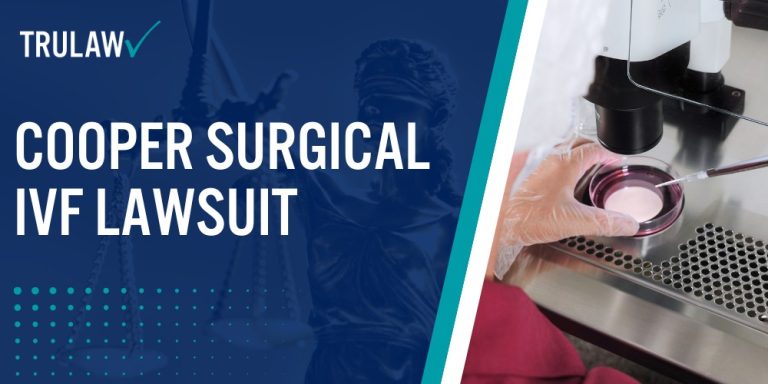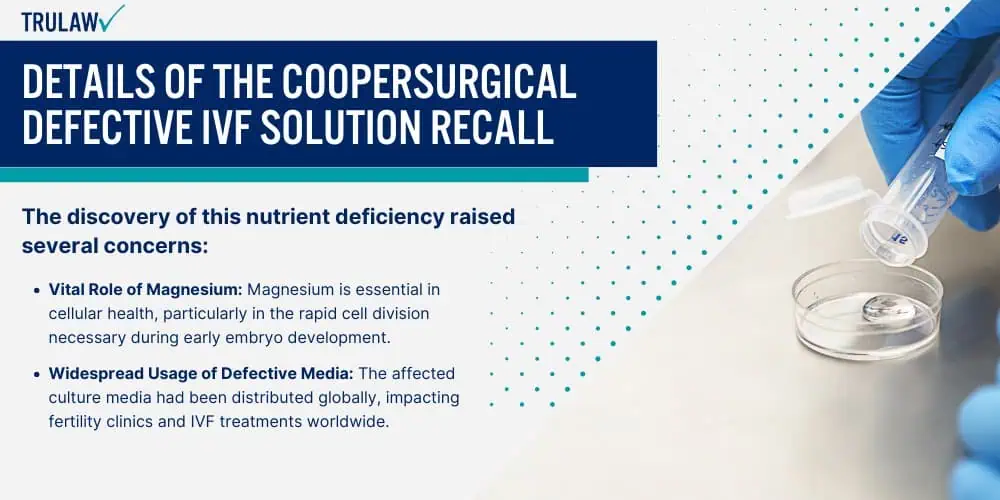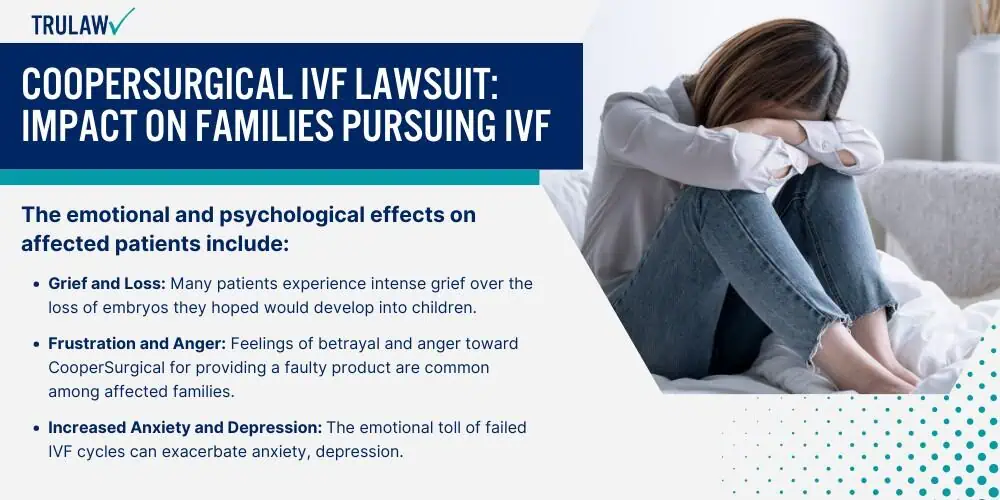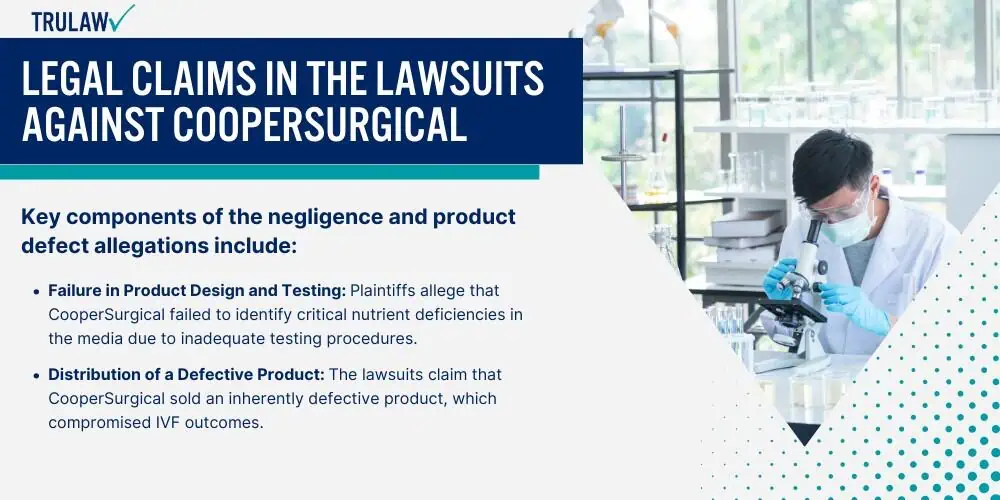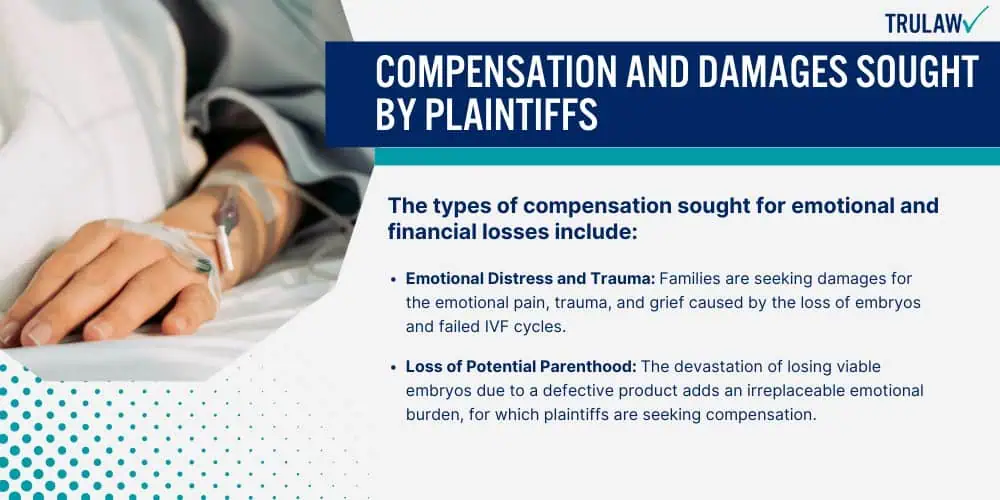Assisted reproductive technology (ART) is essential in in-vitro fertilization (IVF) procedures, with IVF being a key component of ART.
Embryo culture media provides a supportive environment for embryos to develop outside the human body.
This nutrient-rich solution simulates conditions within the human body to help embryos grow successfully during early stages.
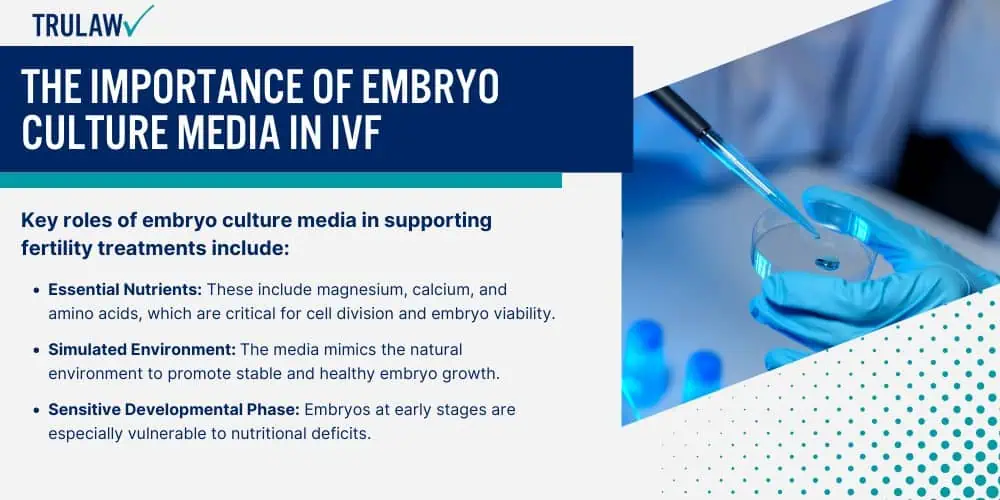
For families pursuing IVF, the quality and composition of embryo culture media directly impact the success of the treatment and the viability of embryos.
Given the emotional, physical, and financial investments involved in IVF, any deficiencies in the culture media can lead to heartbreaking consequences, as seen in the Cooper Surgical case.
Role of Embryo Culture Media in Fertility Treatments
Embryo culture media is a carefully balanced, nutrient-rich solution for embryo growth during the IVF process.
An important component of this process is the embryo culture solution, which has recently been under scrutiny due to lawsuits against CooperSurgical, highlighting its significance and the potential impact of its recall on affected families.
This media replicates the essential nutrients found in a natural biological environment to foster healthy embryo development.
It typically includes minerals, amino acids, vitamins, and other nutrients that support cell division and embryo stability.
If embryo culture media lacks the necessary nutrients, embryos face a higher risk of failing to develop, leading to a significant loss of potential pregnancies.
Fertility clinics and IVF specialists rely on the safety and quality of these products, as even minor deficiencies can compromise the entire IVF cycle, leaving families with emotional and financial burdens.
Key roles of embryo culture media in supporting fertility treatments include:
- Essential Nutrients: These include magnesium, calcium, and amino acids, which are critical for cell division and embryo viability.
- Simulated Environment: The media mimics the natural environment to promote stable and healthy embryo growth.
- Sensitive Developmental Phase: Embryos at early stages are especially vulnerable to nutritional deficits, which can disrupt growth.
- Reliance on Quality Products: Fertility clinics depend on the reliability and safety of the media for successful IVF outcomes.
- Implications of Defective Media: Any deficiency or contamination in embryo culture media can jeopardize the entire IVF treatment, impacting the success rate.
Embryo culture media’s role in fertility treatments emphasizes the need for stringent quality control by manufacturers.
Families undergoing IVF are placing their trust in these products, hoping for the chance to grow their families.
A failure in product integrity, such as the Cooper Surgical recall, demonstrates the severe repercussions when these critical standards are not met.
Impact of Nutritional Deficiencies on Embryo Development
The effect of nutritional deficiencies on embryo development is both immediate and profound, as embryos depend heavily on specific nutrients during early growth stages.
Concerns regarding the safety and efficacy of products like the embryo culture medium used in fertility treatments have been raised, with evidence of lawsuits and warnings associated with CooperSurgical’s embryo culture media.
Nutritional components such as magnesium are critical for cell division and DNA synthesis, which are fundamental to embryos’ early viability.
In the Cooper Surgical case, the absence of adequate magnesium in the embryo culture media contributed to the failure of embryos to develop properly, ultimately leading to nonviable embryos and unsuccessful IVF cycles.
These deficiencies not only hinder successful fertilization but also lead to significant emotional distress and financial losses for affected families.
Nutritional deficiencies in embryo culture media can manifest in several adverse ways:
- Cell Division Impairment: Lack of magnesium and other critical minerals disrupt cellular processes essential for embryo growth.
- Reduced Viability: Deficient media can result in nonviable embryos, reducing the success rate of IVF procedures.
- Developmental Interruptions: Nutrient gaps can lead to halted or abnormal development, decreasing the likelihood of pregnancy.
- Emotional Toll on Families: The loss of potential pregnancies due to defective media brings immense emotional distress.
- Financial Implications: The costs associated with failed IVF cycles and additional treatments further burden affected families.
The Cooper Surgical IVF case serves as a stark reminder of the devastating impact that nutritional deficiencies can have on embryo development.
For families placing their hopes in IVF, the assurance of safe, well-formulated culture media is paramount.
The consequences of defective products underline the necessity for stringent testing and transparency from manufacturers to protect both the physical and emotional investments of families pursuing fertility treatments.
